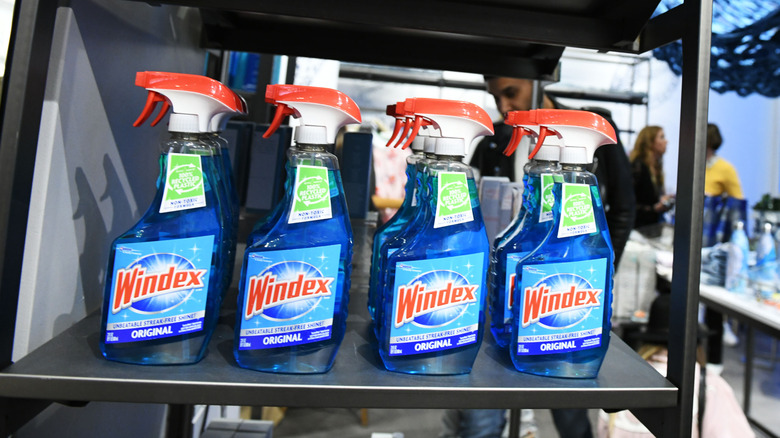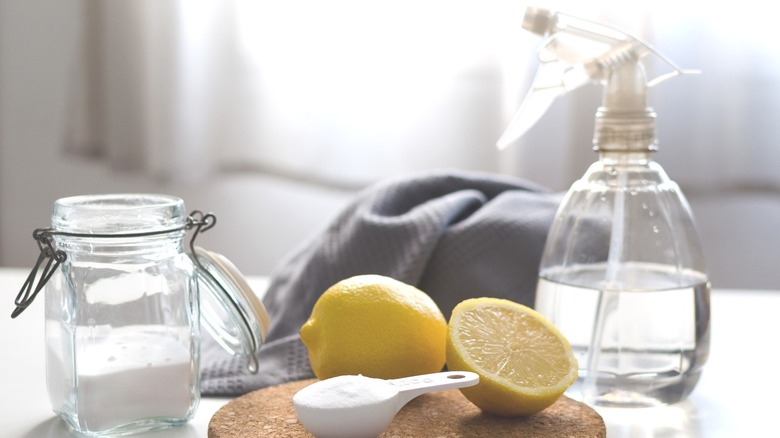Why People Are Ditching Windex (And The Safer Alternatives They're Using Instead)
For years, Windex has been a go-to for sparkling windows and streak-free mirrors. But more people are ditching this classic cleaning product – and for good reason. Some formulations of Windex contain ammonia, which can be harmful if inhaled. It is an ingredient that should never mix with bleach. Additionally, the glass cleaner contains chemicals like hexoxyethanol, lilial, C9-11 pareth-3, hexyl cinnamal, and terpineol, which are known to cause a variety of negative health impacts with prolonged use. For individuals with sensitive skin, respiratory conditions, or allergies, exposure to the fragrances and dyes in store-bought glass cleaners can also trigger reactions. Certain Windex products had been labeled as "non-toxic," a claim that recently came under scrutiny in a lawsuit against the manufacturer, SC Johnson, for misleading consumers about potential harm. All this has left people searching for safer alternatives that still get the job done.
Many are turning to simple, DIY cleaning solutions made from ingredients already in the kitchen, like white vinegar (an extremely versatile cleaning tool) and water. Not only do these mixtures reduce chemical exposure, but they're often more affordable than store-bought products. Homemade cleaners can work just as well on windows, mirrors, and other hard surfaces, without the harsh fumes. And for some peace of mind, you'll know exactly what you're using. That said, "natural" doesn't always mean risk-free, as some sensitive groups may still have a reaction to ingredients like citric acid, essential oils, or vinegar. However, these options are often gentler and safer than synthetic cleaners.
Safer alternatives to Windex
Switching to a less toxic option than Windex does not mean sacrificing a clean, sparkling home. One of the easiest alternatives is a vinegar-based solution. Using a 16-ounce spray bottle, you would mix 3 tablespoons of white vinegar with 1¾ cup of water. This solution works to cut through grime, repel streaks, and leave glass and mirrors gleaming without chemical fumes. For added fragrance and a boost of antibacterial power, include a few drops of essential oils such as lemon or lavender. You can also add cornstarch to the vinegar and water solution for a streak-free cleaner.
Another eco-friendly option would be to use a citric acid and water cleaning solution. Microfiber cloths work best for cleaning with these homemade solutions because they trap dirt without leaving lint behind. Beyond windows and mirrors, these natural alternatives can also clean counters, stainless steel, and other hard surfaces safely — an important benefit if you have kids, pets, or anyone in your household with sensitivities. By ditching Windex in favor of these simple and safe alternatives, you reduce chemical exposure, save money, and keep your home shiny and clean. As a bonus, you will know exactly what is touching the surfaces in your home.

